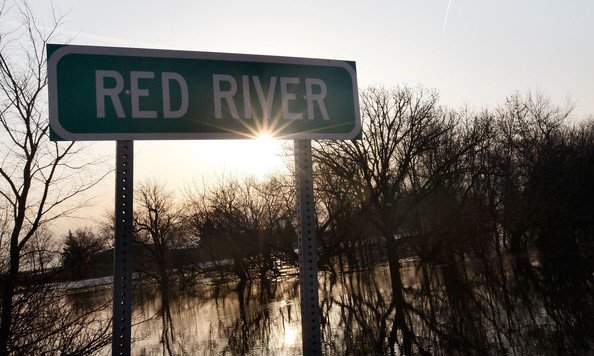Fargo's Special Assessment Vote Was A Farce

The preliminary results for Fargo’s special assessment vote are in and nobody should be shocked that, in a vote where local governments got more votes than the people and where no voters were protected by a secret ballot, the local governments got their way.
For those of you just tuning in, the vote to create a new special tax assessment district in the Fargo area to pay for flood diversion was a bizarre one. It wasn’t a “one citizen, one vote” affair but rather one where votes were proportioned among property owners according to property values and among local governments based on population. As a result the local governments in the district – counties, cities, etc. – got more votes than anyone else.
What’s more, voters weren’t protected by a secret ballot, something made clear when Mayor Tim Mahoney sent out letters to prominent property owners telling them that they should vote yes on the assessment because their votes would be made public.
So, it’s a little hard to call what happened with this vote “democracy.” And now that the results are in, they’re pretty interesting.
Tu-Uyen Tran has a review of the preliminary results. Here’s some fun facts:
- Local governments returned 99 percent of their ballots
- 49 percent of ballots sent to property owners who benefit from the diversion were returned
- 68 percent of ballots sent to property owners who are potentially harmed by the diversion were returned
Why the differential in turnout? Part of the problem could be the lack of a secret ballot. Maybe voters who felt like they couldn’t vote their conscience free of potential backlash chose not to vote at all.
There also could have been a sense of futility. Once the City of Fargo and Cass County cast their allotted votes the issues was a done deal. Every other government entity and property owner could have voted “no” and the special assessment still would have passed.
And some other results tell us why that’s such a travesty. Overall 79 percent voted for the special assessment, but here’s the kicker: “48 percent of the 119 million votes that went to owners of benefiting properties, which includes city and county properties, were ‘yes’ votes, 52 percent were ‘no’ votes,” reports Tran.
The special assessment didn’t get majority support among properties that would benefit from it.
Many Fargo-area politicians and their fellow-travelers in the media have tried to portray support for the flood diversion as nearly universal with only a few cranks on the margins objecting. But that vote outcomes indicates a different sort of reality on the ground.
In a just world this special assessment vote would be rejected as the farce it is and instead a more democratic sort of vote that truly indicates the will of the people – not the will of local bureaucrats.




